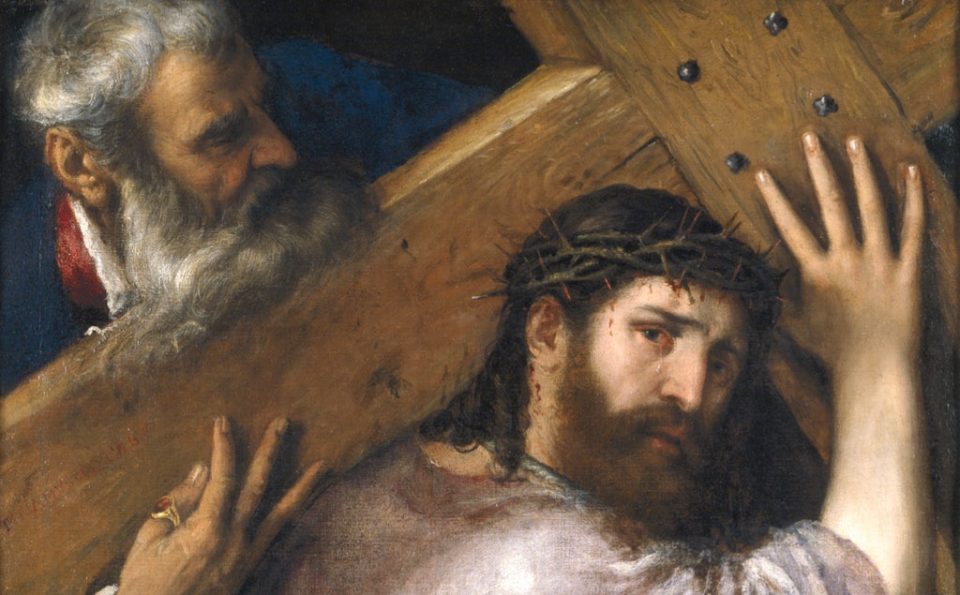Even the Saints are afraid of death

A common soldier dies without fear; Jesus died frightened ". Iris Murdoch wrote those words which, I believe, help reveal an overly simplistic idea of how faith reacts to death.
There is a popular notion that believes that if we have strong faith we should not suffer any undue fear in the face of death, but rather face it with calm, peace and even gratitude because we have nothing to fear from God or the afterlife. Christ overcame death. Death sends us to heaven. So why be afraid?
This is, in fact, the case with many women and men, some with faith and others without. Many people face death with very little fear. The biographies of the saints give ample testimony of this and many of us remained on the deathbed of people who will never be canonized but who faced their death calmly and without fear.
So why was Jesus afraid? And it seems that it was. Three of the Gospels describe Jesus anything but calm and peaceful, like sweaty blood, during the hours preceding this death. Mark's Gospel describes him as particularly distressed while he is dying: "My God, my God, why have you abandoned me!"
What is there to say about this?
Michael Buckley, the California Jesuit, once held a famous homily in which he established a contrast between the way Socrates dealt with his death and the way Jesus dealt with his. Buckley's conclusion may leave us perplexed. Socrates seems to face death more courageously than Jesus.
Like Jesus, Socrates was also unjustly sentenced to death. But he faced his death calmly, completely without fear, convinced that the right man has nothing to fear neither from human judgment nor from death. He argued very quietly with his disciples, assured them that he was not afraid, imparted his blessing, drank the poison and died.
And Jesus, on the contrary? In the hours leading up to his death, he deeply felt the betrayal of his disciples, sweated blood in agony and a few minutes before dying he cried out in anguish as he felt abandoned. We know, of course, that his cry of abandonment was not his last moment. After that moment of anguish and fear, he was able to deliver his spirit to his Father. In the end, there was calm; but, in previous moments, there was a moment of terrible anguish in which he felt abandoned by God.
If one does not consider the inner complexities of faith, the paradoxes it contains, it makes no sense that Jesus, without sin and faithful, should sweat blood and cry in inner anguish while facing his death. But true faith is not always as it appears from the outside. Many people, and often especially those who are the most faithful, have to undergo a test that mystics call a dark night of the soul.
What is a dark night of the soul? It is a test given by God in life in which we, to our great surprise and anguish, can no longer imagine the existence of God or feel God in any affective way in our lives.
In terms of inner feeling, this is felt as doubtful, as atheism. Try as we could, we can no longer imagine that God exists, much less that God loves us. However, as mystics point out and as Jesus himself testifies, this is not a loss of faith but in reality a deeper modality of faith itself.
Up to this point in our faith, we have related to God mainly through images and feelings. But our images and feelings about God are not God. So at some point, for some people (even if not for everyone), God takes away the images and feelings and leaves us conceptually empty and affectionately dry, stripped of all the images that we created about God. While in reality this is actually a domineering light, it is perceived as darkness, anguish, fear and doubt.
And so we might expect that our journey to death and our face-to-face encounter with God can also lead to the breakdown of many of the ways we have always thought and felt God. And this will bring doubt, darkness and fear into our lives.
Henri Nouwen provides a powerful testimony of this by speaking of the death of his mother. His mother had been a woman of deep faith and every day she prayed to Jesus: "Let me live like you and let me die like you".
Knowing her mother's radical faith, Nouwen expected the scene around her deathbed to be serene and a paradigm of how faith meets death without fear. But his mother suffered from deep anguish and fear before dying and this left puzzled Nouwen until he came to see that his mother's permanent prayer had actually been answered. He had prayed to die like Jesus - and he did.
A common soldier dies without fear; Jesus died frightened. And so, paradoxically, many women and men of faith do.